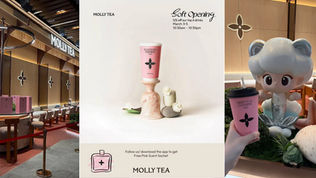Solid Surface vs Quartz: Which Countertop is Right for You?
- Jul 6, 2025
- 3 min read
Explore the key differences in performance, durability, and design flexibility between two of the most popular engineered countertop options today.

Image: HW Homeworks
What is a Solid Surface Countertop?
Solid surface is an engineered material made from a blend of mineral dust, primarily marble, and acrylic or polyester resins, combined with pigments. Most formulations consist of about 66% natural minerals and 33% synthetic resins.

Image: HW Homeworks
Appearance & Weight
Solid surface mimics the look of natural stone with a soft matte finish. It is significantly lighter than quartz, which can make it easier to install, especially in multi-slab applications or wall-mounted surfaces.
Durability
This material is durable enough for standard kitchen use but is more prone to scratches, chips and dents from heavy impact or sharp objects. Using chopping boards and avoiding direct contact with cookware is strongly recommended for maintaining its finish.
Seamless Joints
One of the standout features of solid surface is its seamless appearance. The material can be joined and sanded down for a continuous look, even across large kitchen islands or integrated backsplashes. Thermoforming allows for curved edges, integrated sinks, and custom shapes not possible with stone-based materials.

Image: Wallowin Interior
Heat Resistance
Solid surface countertops can withstand temperatures of up to 100°C. However, prolonged exposure to heat may cause warping or discolouration. Users are advised to place hot pots and pans on protective mats or trivets.
Porosity & Cleaning
Solid surface is non-porous, meaning it does not absorb water or harbour bacteria. However, lighter colours may stain if spills are left unattended. Daily cleaning with water and a soft cloth is usually sufficient. Some manufacturers or contractors may recommend applying an additional sealant for enhanced stain resistance.
Maintenance
Minor scratches can often be sanded or buffed out, restoring the surface to near-original condition. Care must be taken not to over-polish, as this could wear down the surface layer over time.

Image: Wallowin Interior
Pros of Solid Surface
Cost-effective compared to quartz
Seamless installation and versatile design options
Wide range of colours and finishes
Suitable for light to moderate kitchen activity
Cons of Solid Surface
Less resistant to heat and scratches
May not perform well under heavy-duty cooking conditions
What is Quartz?
Quartz countertops are manufactured using approximately 90–95% crushed natural quartz combined with 5–10% polymer resins and colourants. This creates a dense, durable surface with the aesthetic of natural stone and the performance of engineered materials.

Image: HW Homeworks
Appearance & Weight
Quartz surfaces offer a high-end look and are available in a wide range of colours and textures, from marble-inspired veins to concrete-like finishes. Lighter-toned quartz may appear less natural than true stone, but darker shades often replicate stone more convincingly. Quartz is heavier than solid surface by about 30%, giving it a more substantial, premium feel.
Durability
Quartz is highly durable and scratch-resistant, making it suitable for busy kitchens and heavy daily use. Its strength is comparable to granite, and it holds up well against wear from pots, knives, and spills.
Joints and Seams
Unlike solid surface, quartz countertops will have visible seams, especially where two slabs meet. These joints are typically around 1 to 2 millimetres wide and may be more noticeable over time if not properly sealed and maintained.
Heat Resistance
Quartz can handle temperatures up to 200–204°C. However, sudden temperature changes may still cause cracking. It is best to avoid placing hot pans directly on the surface.
Non-Porosity & Hygiene
Quartz is non-porous, which means it resists water, stains, and bacteria without the need for sealing. This makes it ideal for food preparation zones and households concerned with hygiene.
Maintenance
Quartz requires minimal maintenance. Daily cleaning with water and mild detergent is sufficient. Harsh chemicals and abrasives should be avoided to preserve the surface sheen.

Image: HW Homeworks
Pros of Quartz
Extremely durable and scratch-resistant
Higher heat tolerance than solid surface
Non-porous and low maintenance
Suitable for heavy kitchen use
Cons of Quartz
More expensive than solid surface
Visible joints and seams
Less flexibility in creating curved or integrated shapes
Final Thoughts: Solid Surface vs Quartz - Which Should You Choose?
Choosing between solid surface and quartz depends largely on your kitchen usage and design priorities. For light to moderate use and design flexibility, solid surface offers excellent value and visual appeal. For durability, hygiene, and intensive cooking, quartz is the stronger contender.
Before making a decision on solid surface vs quartz, consult your interior designer. Discuss your cooking habits, household needs, and style preferences to find a material that fits both your lifestyle and budget!
First published: 29 Oct 2021
Last edited: 06 Jul 2025








